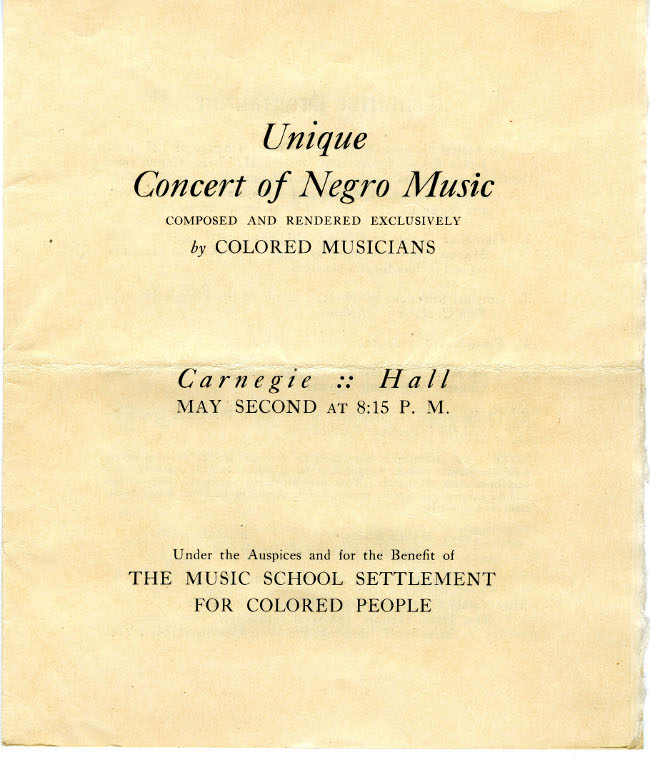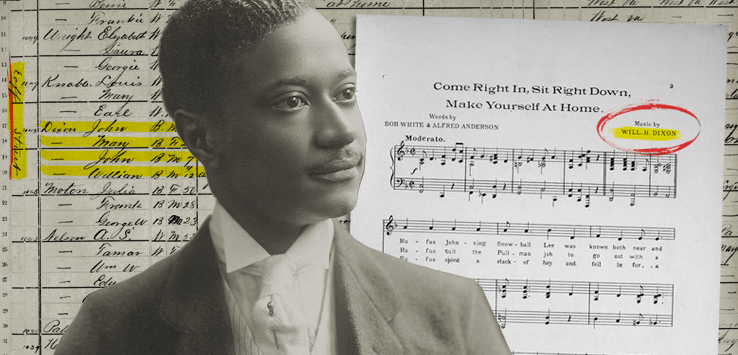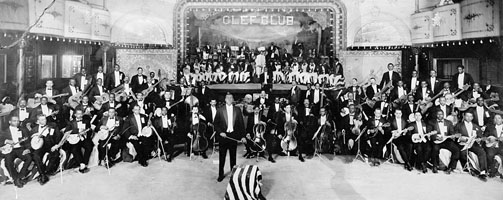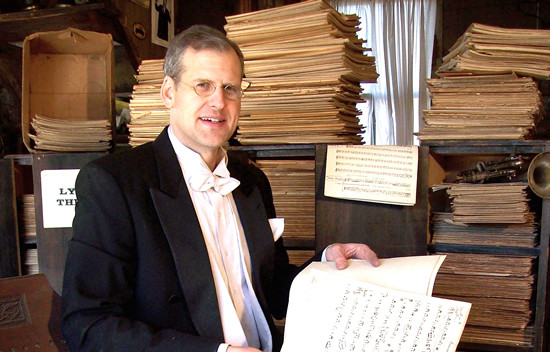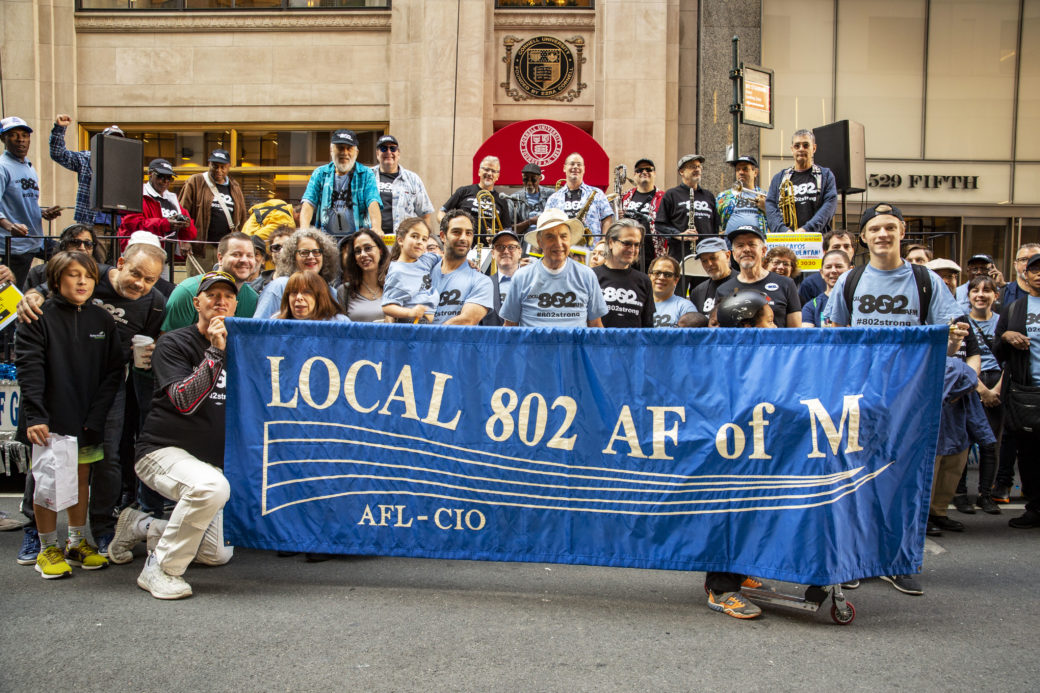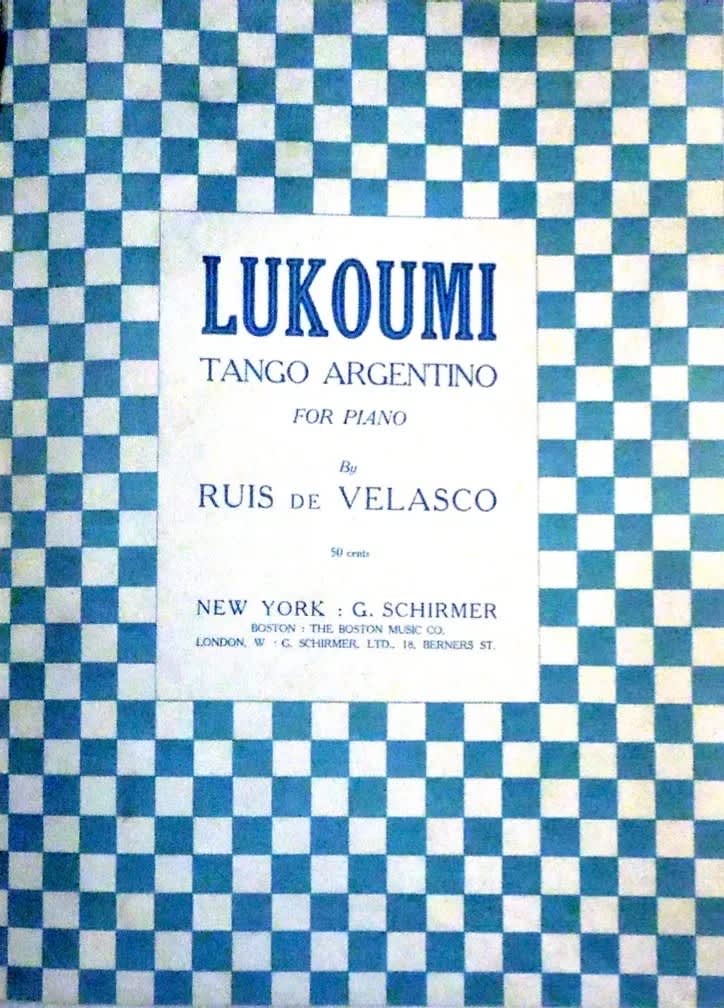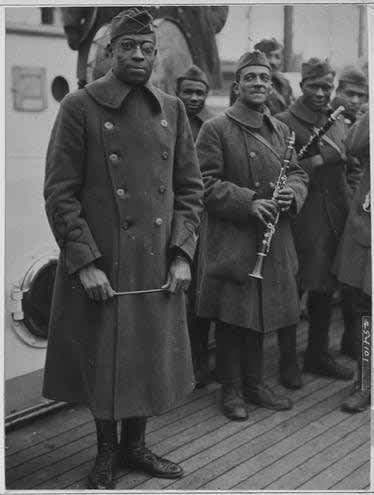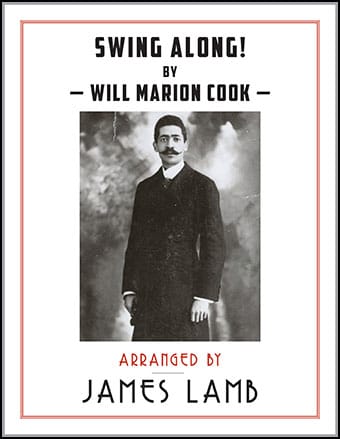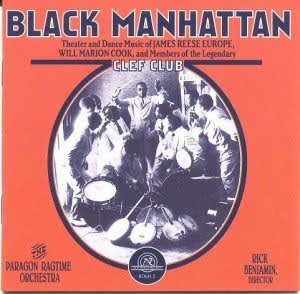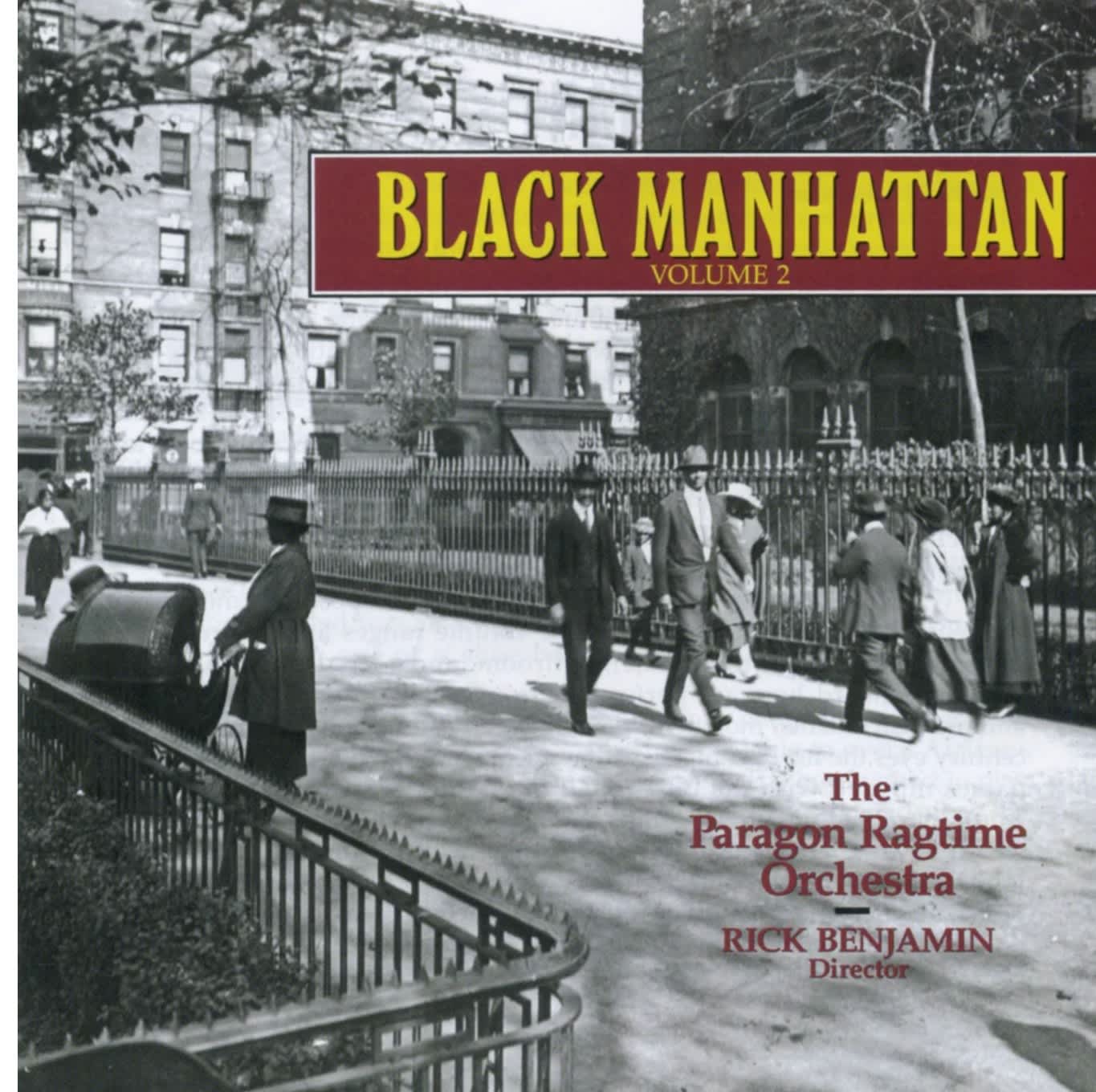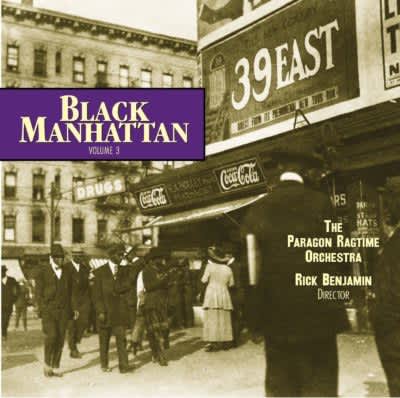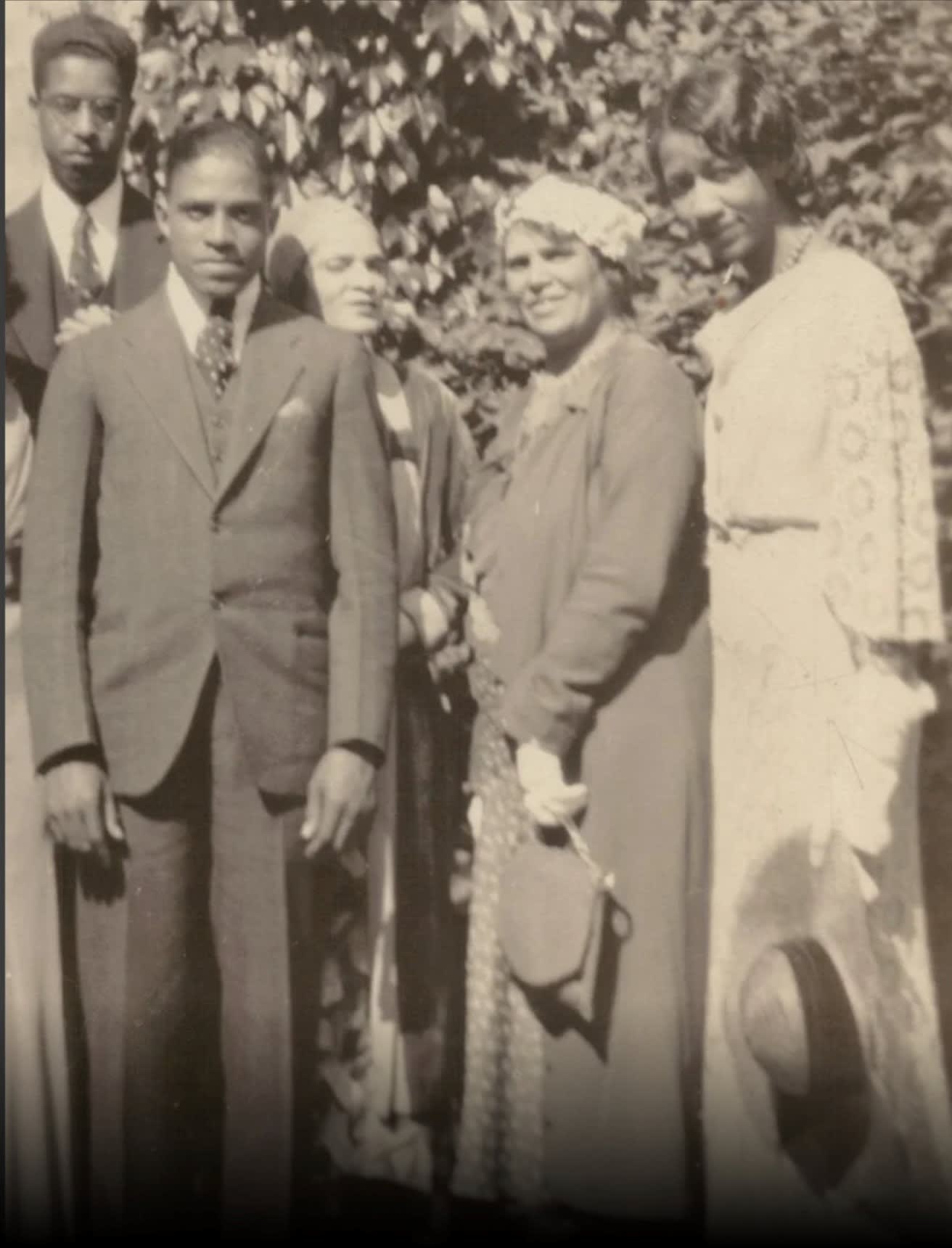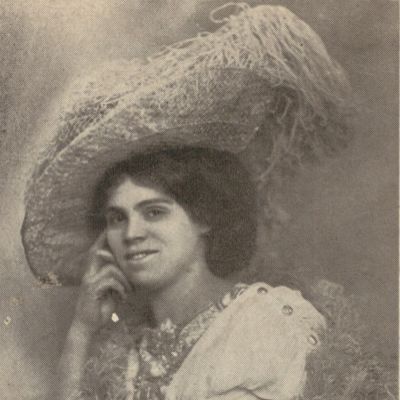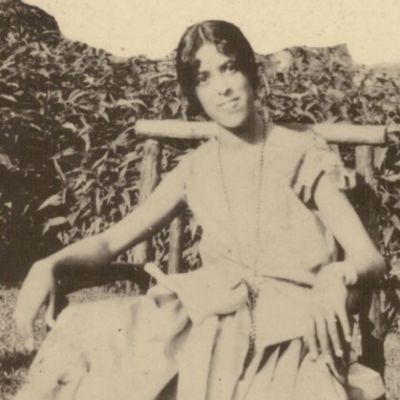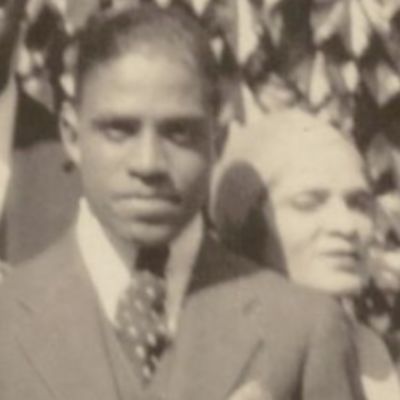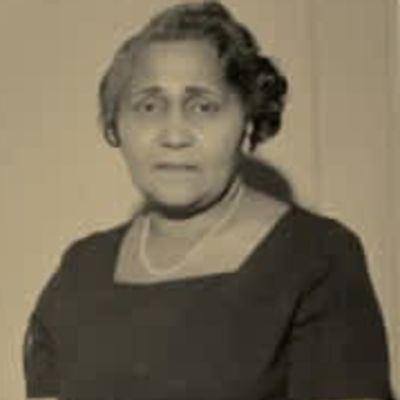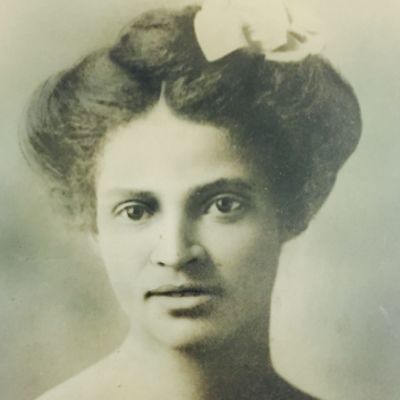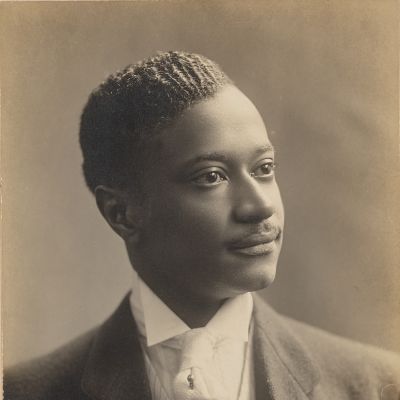
Will (William) H. Dixon
A Frogs member, Clef Club founder, Pianist and Composer Will H. Dixon—dubbed "The Original Dancing Conductor" by James Weldon Johnson.
Until now, the most comprehensive biographical sketch of Will H. Dixon to date was written by Rick Benjamin, found in the Liner Notes of Black Manhattan, Vol. 2 and the Clef Club, Vol. 1 CD's. The story of the Dixon family begins in the town of Wheeling, West Virginia. John H. Dixon, Sr., from Maryland married Mary Putnam, from Ohio, to this union was born 4 children. William Henry Dixon, John H. Dixon, Jr., Harry E. Dixon and Estella Mae Dixon. He and his siblings would attend Lincoln, a segregated school. In the 1890's the Dixon's migrated to Chicago, settling in the Bronzeville neighborhood on the southside of Chicago.
In early 1905, Will H. Dixon, was one of several promising Black Composer's and Music Conductors, who would form the Memphis Students Company along with other famed composers like Ernest Hogan and Will Marion Cook, other members included Anna Pankey Cook (singer) and Abbie Mitchell (leading soprano). Will Marion Cook (Mitchell's husband) wrote the songs, he would later purchase the rights to the show from Hogan. In Spite of a five-year contract Hogan had signed with producers Hurtig and Seamon in late 1905, Hogan was hired as their Lead Vaudeville Singer and Comedian. Will H. Dixon was the Musical Director and Ida Forsyne was the featured dancer (billed) as "Miss Topsy, the girl who was not born, but who just grew."
It was reported in Thursday's, October 9th, 1905, issue in the New York Age Newspaper that "France was soon to be invaded by some of the best vaudeville talent of New York". The Memphis Students was a combination: chorus, orchestra and variety troupe made up of twenty-five members. It was considered an elite company frequenting New York's Vaudeville Theatres. The Students played more than 100 performances at Proctor's and Hammerstein's Victoria Theatre and Paradise Roof Garden near Broadway during the Summer and Fall of 1905. The month of November 1905, mark's the troupes travel to Europe for a three-month engagement at the Follies Berge, where the show was met with great success (especially Forsyne), and returning to the United States in May 1906. In 1908, The Memphis Students returned to Vaudeville, performing at the 127th Street Theatre with Abbie Mitchell playing opposite comedian Tom Fletcher.
As a talented pianist, composer, musician, singer, songwriter, music publisher, playwright, stage manager, conductor, bandleader and vaudeville performer Will H. Dixon collaborated with many of his musical contemporaries such as famed vaudeville comedian Bert A. Williams, George Walker of Williams & Walker, Henry S. Creamer, Cecil Mack, Theo Bendix, Joe Jordan and his Chicago partner/collaborator Lyricist T. Alfred Anderson, they collaborated together on a number of songs. His songs have been sung by some of the greatest vaudeville singers of the time (i.e.) Carita Day, Ethel Levy, Sophie Tucker, Eva Tanguay, Grace Cameron, Inga Orner, Ed Morton, Eddie Leonard and the Nicholos Sisters. The "famed dancing duo" Irene and Vernon Castle popularized one of Will Dixon's classical compositions. Other lyricists and musical arrangers included: J. Louis von der Mehden, A.C. Woodvat, Bob White, Fred Van Epps, Arthur Lange, Theo Bendix and Harry Von Tilzer.
Once described as "Chock Full of Ambition" in 1907 Will H. Dixon, ventured out to establish his own music company, the Will H. Dixon Music Publishing, Co., in the Theatrical Exchange Building located at 1431 Broadway, Suite #314, New York's Theatre District. During Dixon's life-time he recorded a number of his songs and orchestral arrangements with many other leading music publishers which included: The Royal Music Publishing Co., (Minneapolis, MN), Victor Talking Machine Co., Columbia Records, Edison Recordings, M. Witmark & Sons, G. Schirmer's, G. Ricordi & Co. (New York/Paris), The Modern Music Publishing Co., (Chicago), The Penn Music Co., (NYC), and the Joe Morris Publishing Co. The Black Manhattan Trilogy holds several select musical compositions that have been recorded on the New World Record Label by Rick Benjamin, Director of the Paragon Ragtime Orchestra of Lewisburg, Pennsylvania.
During his short life-span the name Will H. Dixon, was very familiar to all old Chicagoans and New Yorkers, so it is no wonder that his professional and social circle of friends numbered in the hundreds. He was born August 29, 1879, in Wheeling West Virginia, USA, and died May 14, 1917 in Cook County Illinois, USA. William is buried in Oak Woods Cemetery in Chicago. Will H. Dixon married Chicago's Madam Maude Seay in 1912 in NYC, her original place of birth was Macon, Missouri. "Madam Seay" as she was professionally known established a highly successful millinery business enterprise. She was dubbed "The Queen of Milliner's" and the Seay Millinery Shop's reputation spanned (Chicago to San Francisco).
According to her Memoir "Open Wide the Freedom Gates" by the late Civil Rights Leader Dorothy I. Height, described her in this way "Mrs. Maude Dixon Myers was fair skinned and a very enterprising woman and one of the first Negro women to distinguish herself in business" Growing up in Missouri she was known as Miss Maude Mae Rubey, where she graduated Western College, becoming a teacher in the Macon School System. She once initiated divorced from her first marriage and was widowed twice, her 1st marriage was to businessman Frank Seay in 1902, they divorced in 1910. Maude's 2nd marriage was to Will H. Dixon in 1912, they were married a short time (one daughter) before she became a widow in 1917. Her 3rd marriage was to World War I military veteran (buffalo soldier), businessman and practicing chiropractor, Capt. Alonzo Myers, in 1919, she would become widowed a second time in 1938 after the untimely death of Capt. Myers. He was struck by a taxicab on Fulton Street in downtown Brooklyn, his wounds proved fatal.
Of this loving union of Mrs. Maude and Will Dixon was born one daughter Miss Francesca "Frankye" Alfreta Dixon aka (Mrs. Frank R. Thompson) born in 1915 in Cook County Chicago. She was a musical prodigy in her own right and classically trained, a graduate of Juilliard, Institute of Music, New York University & Columbia University's Teacher's College. She was a young musician, society girl and one of Harlem's leading concert pianists, a music scholar, critic and editorial writer (Amsterdam Newspaper, USA), lecturer, and accompanist to famed Contralto, R. Louise Burge and a tenured Professor of Music at Howard University's College of Liberal Arts & the School of Music.
After serving in World War, I Maude married Capt. Alonzo Myers, they would enter into the real estate business, she was the president and recording secretary of 2197 7th Ave Corp. Together they owned the Myers building at 172 W. 130th Street & Adam Clayton Powell, Jr. Blvd. (still standing).
The Dixon's civic and social circle of friends and associates, reads like a "Who's Who of Black Society". The swank Harlem residence at 1871 Seventh Ave, was described in a newspaper ad as "8 Deluxe Private Rooms, Elevator, French Door Panels, Side Slights etc. The most beautiful building in the most desirable section of the Avenue". A young Dorothy Height who lived with the Dixon family in Harlem once described it this way "The thing that I think was of interest to me in the Harlem Community was where we lived, 114th Street and Seventh Avenue- (Adam Clayton Powell, Jr. Blvd.) and again on Morningside Avenue- (overlooking Morningside Park) at that time those were newly opened (apts.) to black people. The Seventh Avenue building was a huge eight and a half room cooperative that at that time was the equivalent of any we'd see in the finest area of Park Avenue. It was a lovely setting". "Mrs. Myers was a very enterprising businesswoman, she was an officer in the cooperative. It was a place, where she had a grand piano in the end of the apartment, which was the music room. And then she could have a Steinway in the front parlor, and there were several living rooms for entertaining and musical recitals".
"Will H. Dixon, the well-known songwriter, spent the holidays in Chicago, his old home, and reports that the Windy City is the same hustling, bustling "Chi." He was the recipient of much social attention."
"Will H. Dixon, the colored composer who wrote the music for Hogan's "Memphis Students," is writing a score for a new act to be sent abroad. Carita Day will head the act, to be called "The Eight Abyssinia Girls." An effort is being made also to get Ada Overton Walker." Variety, July 17, 1906.
"Henry S. Creamer. manager for the Gotham Attucks Music Publishing Co., has written the book and lyrics of a two-act musical comedy, entitled "The Belle of Bedford," which was given a try-out at Prospect Hall, Brooklyn, last Friday during a benefit. The show will be taken out on the road next season. Will H. Dixon wrote the music and staged the play." Variety, May 29, 1909
"The Belle of Bedford" is the title of a two-act musical comedy to be produced next season. Music is by Will H. Dixon, and book and lyrics by Henry Creamer, of the Gotham Attucks Music Publishing Company." The Billboard, June 12, 1909, page 10.
"The Belle of Bedford" Presented:
The dramatic entertainment and reception which was recently given by the Willing Workers' Circle of King's Daughters at Prospect Hall, Brooklyn, for the benefit of the House for Aged Colored People was a grand success. The chief attraction was the appearance of the Bedford songsters in their special musical comedy, "The Belle of Bedford." An appreciative audience was present to enjoy and cheer the salient points scored by these young amateurs." Afro-American, May 29, 1909, page 7.
"Brazilian Dreams" was another hit of this year's follies. It was the work of Will H. Dixon, 5440 Dearborn Street."

